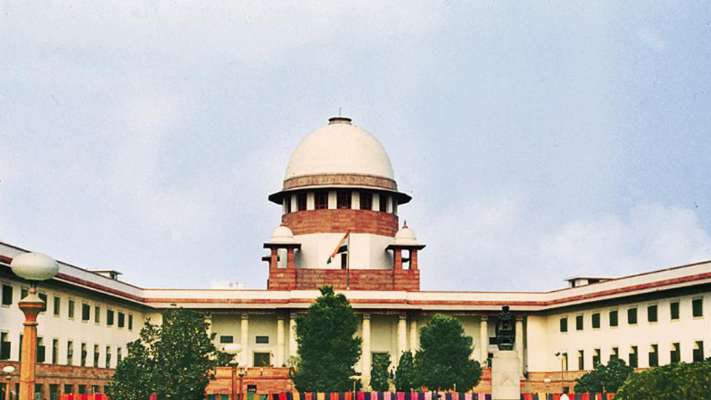New Delhi: A plea seeking review of the verdict which cleared the way for construction of a Ram Temple at the disputed site in Ayodhya was filed Monday in the Supreme Court. It stated that ‘complete justice’ could only be done by directing reconstruction of Babri Masjid.
A five-judge bench, headed by the then Chief Justice Ranjan Gogoi, had in a unanimous verdict November 9 decreed the entire 2.77 acre disputed land in favour of deity ‘Ram Lalla’ and also directed the Centre to allot a five-acre plot to Sunni Waqf Board for building a mosque in Ayodhya.
While key litigant, Uttar Pradesh Sunni Central Wakf Board, decided against challenging the verdict, Maulana Syed Ashhad Rashidi, legal heir of original litigant M Siddiqi and UP President of Jamiat Ulama-e-Hind, sought review of the verdict on 14 counts.
The litigant, in review plea filed through lawyer Ejaz Maqbool, has also sought an interim stay on operation of the verdict in which it had directed the Centre that a trust be formed within three months for construction of the temple at the site.
Rashidi also questioned the direction asking the Centre and the Uttar Pradesh government to allot five acres land for construction of a mosque at a prominent place in Ayodhya. He said that such a prayer was never made by the Muslim parties.
It was also submitted that despite acknowledging several illegalities committed by the Hindu parties, including the destruction of the mosque at the disputed site, the apex court condoned them and granted the land to them.
“By virtue of the impugned judgment, this court has effectively granted a mandamus to destroy Babri Masjid and to construct a temple of Lord Ram in the said place,” the plea said.
It further stated that though in the impugned judgment this court has acknowledged few of the several illegalities committed by the Hindu Parties, particularly in 1934 (damaging the domes of the Babri Masjid), 1949 (desecrating the Babri Masjid) and 1992 (demolition of the Babri Masjid), it has ‘proceeded to condone those very illegal acts and has awarded the disputed site to the very party which based its claims on nothing but a series of illegal acts’.
However, Rashidi submitted he was not seeking review of the entire judgement and several findings, and was limiting the plea to apparent errors on the face of records such as the title in favour of Hindus ‘virtually amounts to a mandamus to destroy the Babri Masjid’ and ‘no person can derive benefit out of an illegality while granting title to Hindu parties’.
It said the judgement erred in disregarding the settled principle of law that a ‘tainted cause of action cannot be sustained or decreed in a civil suit’.
“This court erred in wrongly applying Article 142 of the Constitution as doing complete justice or restituting the illegality could only be done by directing the reconstruction of the Babri Masjid,” said the review plea, running into 93-pages.
The verdict disregarded the settled legal principle and supported ‘a party which based its cause of action upon an illegal act’, the plea said.
PTI
